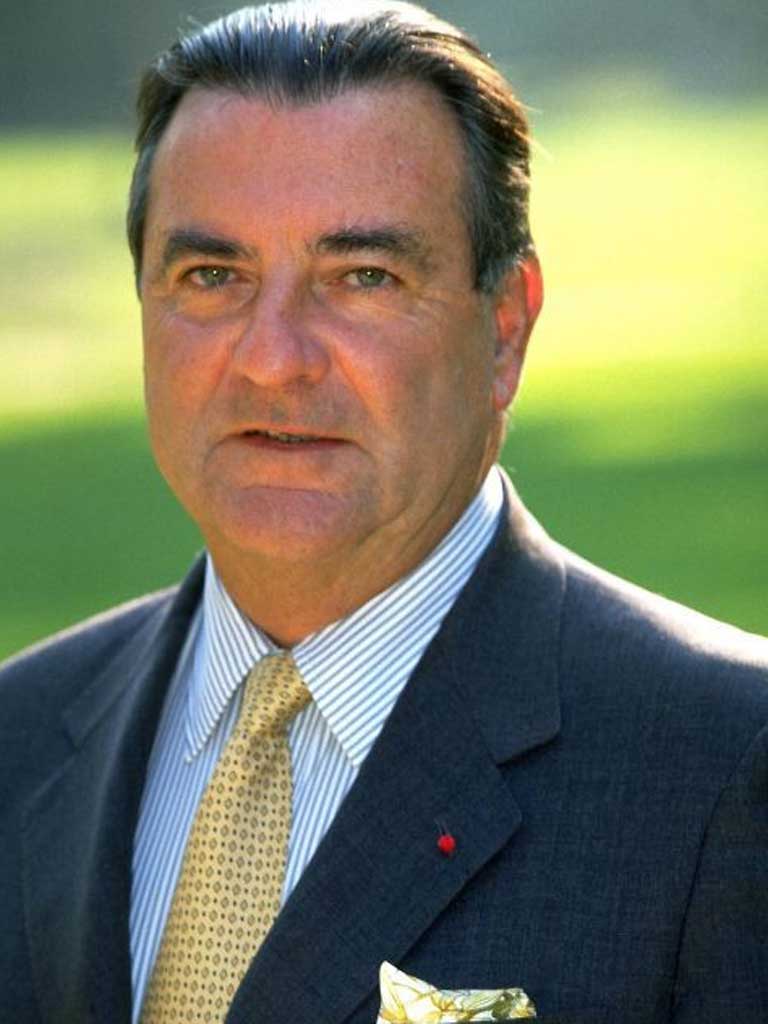Patrick Ricard: Entrepreneur who made the family firm a world leader

Over the past 35 years Patrick Ricard, who has died following a suspected heart attack, was responsible for one of the most surprising successes in world business. He inherited a single product – "Ricard the Pastis of Marseilles" – sold almost entirely in France. Today Pernod-Ricard is the second biggest drinks business in the world, generally accepted as the best managed, with only a 10th of its sales in France. Moreover its range of brands is the widest in the industry since it includes table wines like Jacob's Creek, champagnes (Mumm and Perrier-Jouet), Chivas Regal and other Scotches, Martell Cognac, Beefeater Gin and Absolut Vodka, all capable of generating serious levels of profitability.
Ricard was not a dominating character, resembling, rather, a typical solid conservative French provincial businessman, and was genuinely much loved by his employees. He remained relatively little-known in France, for he had none of the "bling" or the political influence required for fame at home although his success abroad was unmatched by almost all his contemporaries. In 2006 his qualities were recognised by magazine Fortune when it named him "European businessman of the year".
Over the decades he showed himself willing to "bet the farm" on more than one occasion, piling up a debt burden which may have seemed crippling to others but never seemed to have worried him. Moreover he chose his subordinates well and gave them his total confidence, providing them with the capital to build up – or in many cases rescue – their brands, for he remained faithful to his formula of "global reach, local control".
Ricard's father, Paul, was a larger-than-life monster, famously bad-tempered but equally generous, invariably at odds with French tradition: a great entrepreneur and a great salesman who detested the power of the French state and its over-powerful bureaucracy. He more or less invented the Pastis category, its success helped by sports sponsorship, and his name became ubiquitous in France. Unlike most successful French businessmen Patrick, his second son, did not go to a super-selective Grande Ecole, but in 1967 went to work in his father's firm at the age of 22. As he put it with typical simplicity: "People would have regarded it as curious if I had not joined Ricard. My father was a strong character and anyway, in those days, you did what you were told."
In a fit of temper with state controls, Paul Ricard resigned from day-to-day involvement in his company in 1968, though seven years later he arranged a merger with Pernod, his most significant competitor. In 1978 his son was appointed chairman and managing director at the age of 33. Within a couple of years he had bought Austin Nichols, a prestigious American wine importer and owner of the Wild Turkey brand of bourbon. But his breakthrough, and the first demonstration of his policy of giving subordinates their head, came in 1988 when the Irish government was selling Irish Distillers, owners of the then-marginal brands of Irish whiskies. The Irish were unwilling to sell to the British group of Grand Metropolitan so it fell into Ricard's hands, a major stroke of luck. He appointed a talented Irish salesman, Richard Burrows; today Jameson sells four million cases a year.
But the transformation of Pernod Ricard into a world-size business came only in the last 11 years, essentially through the transformation of famous brands which had been neglected or badly managed. In 2001 Seagram, once the king of liquor groups, was broken up and Ricard managed to acquire a number of world-famous brands which had fallen very low, most obviously Martell, which for two and a half centuries had been either the biggest or second biggest firm in Cognac but which Seagram had managed to reduce to an ill-managed fourth. It is now back in its proper place.
The same applies to Mumm champagne, previously the third largest in champagne, where the quality had suffered badly through lack of investment. But the biggest star in the Seagram firmament was Chivas Regal Scotch, where Ricard extended the range. Four years later the badly-managed British group Allied Domecq was taken over, bringing with it such gems as Beefeater Gin, where the master distiller, about to take early retirement because of poor management, was greeted by the men from Ricard with the words "what can we do for you?". He stayed and introduced new gins to an appreciative world.
In 2008 Ricard handed over day-to-day management to Pierre Pringuet, a typical member of the French management elite. But when, that same year, Ricard bought Absolut Vodka from the Swedish government, observers concluded that he'd gone too far, accumulating too much debt buying a brand which had reached its peak. They were wrong: debt declined and sales increased.
Patrick Ricard, entrepreneur: born 12 May 1945; married (three children); died Toulon 17 August 2012.
Subscribe to Independent Premium to bookmark this article
Want to bookmark your favourite articles and stories to read or reference later? Start your Independent Premium subscription today.

Join our commenting forum
Join thought-provoking conversations, follow other Independent readers and see their replies